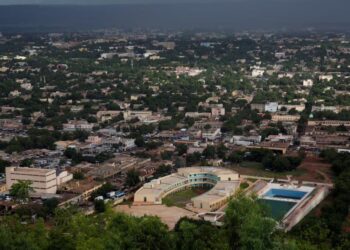The Nigerian Government says that the removal of the petrol subsidy by President Bola Tinubu ended a historic financial drain that cost Nigeria over $84bn and has helped finance 40 critical road projects across the country in two years.
According to the policy document released by the National Orientation Agency (NOA) and titled “Two Years Later: Key Benefits of Subsidy Removal”, the policy saved the country from imminent economic collapse and enabled the Tinubu administration to settle decades-long financial obligations, ramp up capital expenditure, and stabilise subnational economies.
“For decades, particularly since the advent of the current democratic dispensation, a major albatross of the Federal Government had been the oil subsidy regime. Successive administrations’ zeal to tame the menace had proved a fiasco, while the economy continued to hemorrhage profusely. However, by 2015, many Nigerians had reached a consensus that it was high time the subsidy was consigned to the dustbin of history, as the subsidy budget in 2022 rose by 700 per cent to N4tn, the highest ever in subsidy history.
“Between 2005 and 2022, successive governments spent $84.39bn on fuel subsidies. These subsidies consumed over 70 per cent of potential federal revenue, pushing the country to the brink of bankruptcy. But with the bold decision to remove it, Nigeria is now saving billions and investing in real infrastructure,” the agency said.
The NOA noted that Tinubu’s widely debated “subsidy is gone” declaration on his first day in office ushered in tough reforms that have since yielded tangible fiscal gains across various sectors. One of the major outcomes of subsidy removal, the NOA noted, was the improved financial autonomy of state governments.
It said, “Removal of subsidy not only saved the entire economy from imminent collapse, it also rescued several states of the federation from bankruptcy. Upon the take-off of this incumbent administration, Nigeria was spending 97 per cent of its revenues to service debts until its debt profile exceeded N100tn.
“Fuel subsidies consumed more than 70 per cent of the potential Federal Government’s revenue, forcing both the central and state governments to resort to heavy borrowings to finance their budgetary expenditures, but the removal helped the country to save billions.”
It also stated that most states, previously struggling to pay salaries, have become financially stable despite recent increases in the minimum wage.
“States now swim in inflows of funds, paying salaries as at when due despite more than 100 per cent minimum wage increase and drastically reducing their debt portfolios because subsidy removal puts more money into their hands.
“Thus, as records from the Debt Management Office have shown, in the last 18 months, the total domestic debt profile of the 36 states and FCT had declined from N5.82tn in June 2023 to N3.97tn in December 2024. This implies that subnational administrations had repaid N1.85tn debts within one and a half years.”
The agency revealed that subsidy savings have helped the Tinubu administration clear a $7bn foreign exchange backlog owed to foreign airlines and businesses, which previously ranked Nigeria highest globally in outstanding FX obligations.
It added that Nigeria’s external reserves, despite debt service obligations and forex interventions, rose from $35bn in May 2023 to $38.9bn as of March 2025.



























































